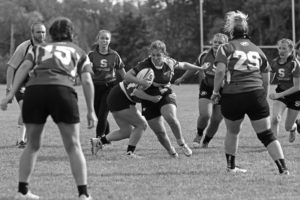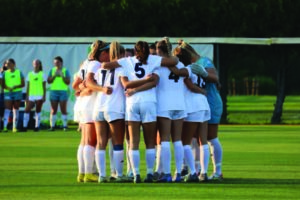Sept. 13 marked the 50th anniversary of the New York City Marathon, one of the most highly anticipated events in the city, but the marathon was moved to remote running due to COVID-19. Now that the marathon is remote, runners will map out their own 26.2-mile course and run, while tracking their time, between Oct. 17 and Nov. 1.
The New York Road Runner, the parent organization that puts the marathon on every year, wanted to ensure runners could still race but be in a safe environment at the same time. The New York City marathon sets out to accomplish feats of athleticism for all, even during a pandemic.
Looking back on the history of the race, we’re really seeing the 47th anniversary of equality amongst runners, as 1972 was the first year in which women were allowed to enter the race and have their times counted and validated by the organizers. This feat towards equality came from the Amateur Athletics Union (AAU), which was the governing body for all marathons and road races in the United States at the time, but it wasn’t exactly established in the first attempt. The organization decreed that women were allowed to run the marathon if they started either 10 minutes before or after the men, or if they ran a separate course altogether. Though the organization had taken the first step toward equality, they were a few paces behind some front runners of the movement as a whole, such as the Boston Marathon, which began allowing women to compete starting in April of 1972. In 1967, Kathrine Switzer entered into the Boston Marathon under the alias of K. V. Switzer and trimmed her hair in order to blend in with all of the men she was running alongside.
Five years after Switzer, and likely many other women under other aliases, snuck into the race, the 1972 New York City Marathon was set to make history when head organizer Fred Lebow called press from all around the area to come and capture the spectacular feat in the marathon’s third year. He wasn’t calling attention to the 250 men who had entered the race, rather the six women who stood at the starting line. Following AAU guidelines, the organizers decided to give the female runners a ten-minute head start, and thus they were the only ones lined up at the start. The gunshot that signaled the start of the race was followed by the best possible response from the six women present. Lynn Blackstone, Jane Muhrcke, Liz Franceschini, Pat Barret, Cathy Miller and Nina Kuscsik promptly sat down at the starting line and peacefully protested for 10 minutes.
The AAU’s separate but equal concept was not satisfactory to its participants, and they made their point known by ensuring they ran alongside the men in a fair and equal race. Just years after top “experts” stated that distance running would be damaging to women’s health, including preposterous claims that a woman’s uterus may fall out should she attempt to run long distances, six brave souls stuck it to them. Earlier that same year, Kuscsik won the Boston Marathon and ended up being the first of the group of six to finish the New York City Marathon, calling the finish “an important one, because it was official” via an interview with the New York Times after the race.
After receiving such harsh public embarrassment, the AAU threw out their rules regarding the 10-minute delay and formally announced that women would be allowed to run alongside men in the same capacity at any marathon throughout the country.
“It was a huge, breakthrough year,” Switzer proudly decreed. “In 1972, it counted. It wasn’t just ‘You’re a girl.’ It was, ‘You’re an athlete.’ It made all the difference, and then we realized the potential for women’s running.”
This wouldn’t be Switzer’s last time in the spotlight, as she went on to win the New York City Marathon in 1974. Today, at the age of 73, she’s still gearing up for the remote marathon, standing and running as a testament to willpower.











